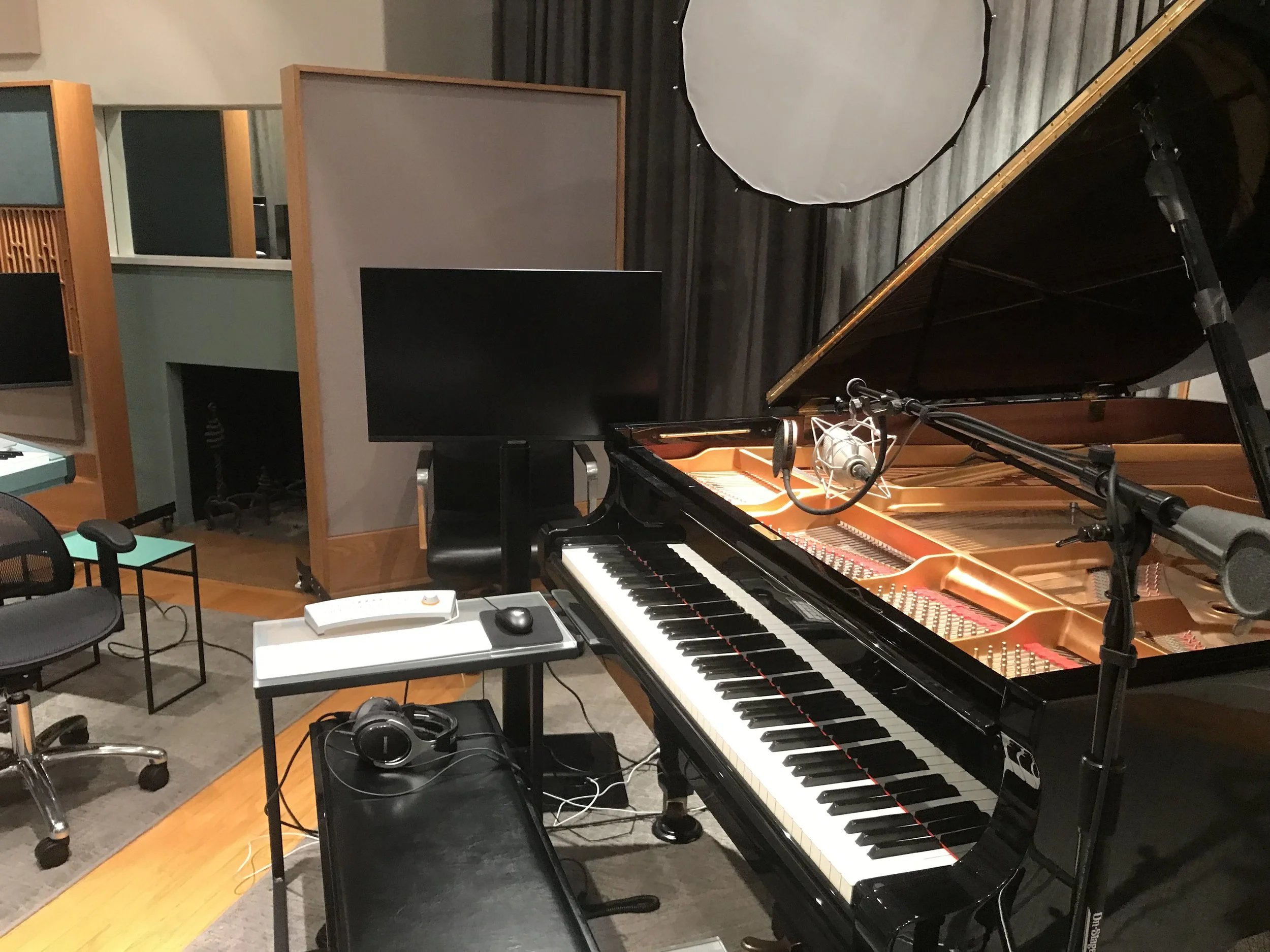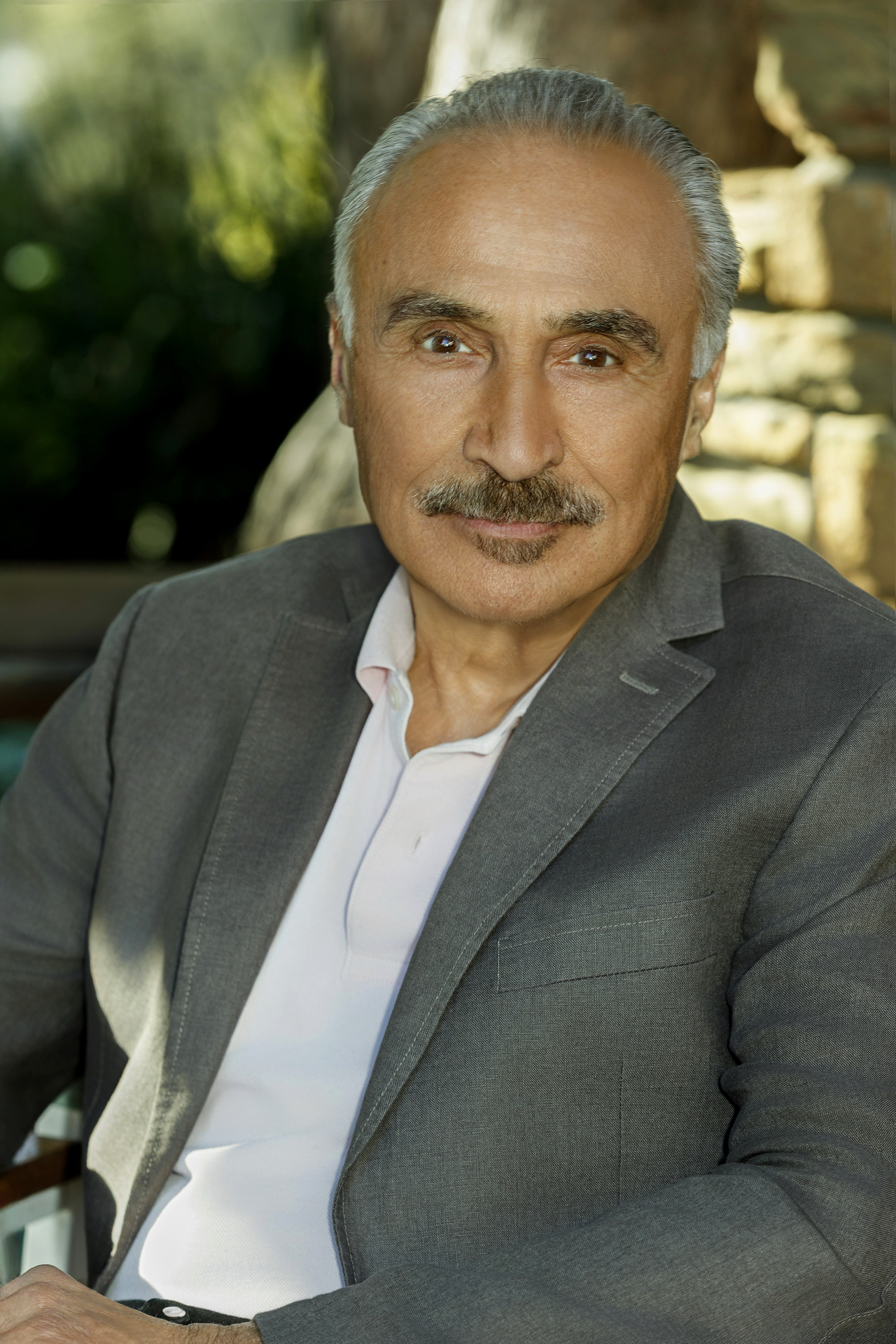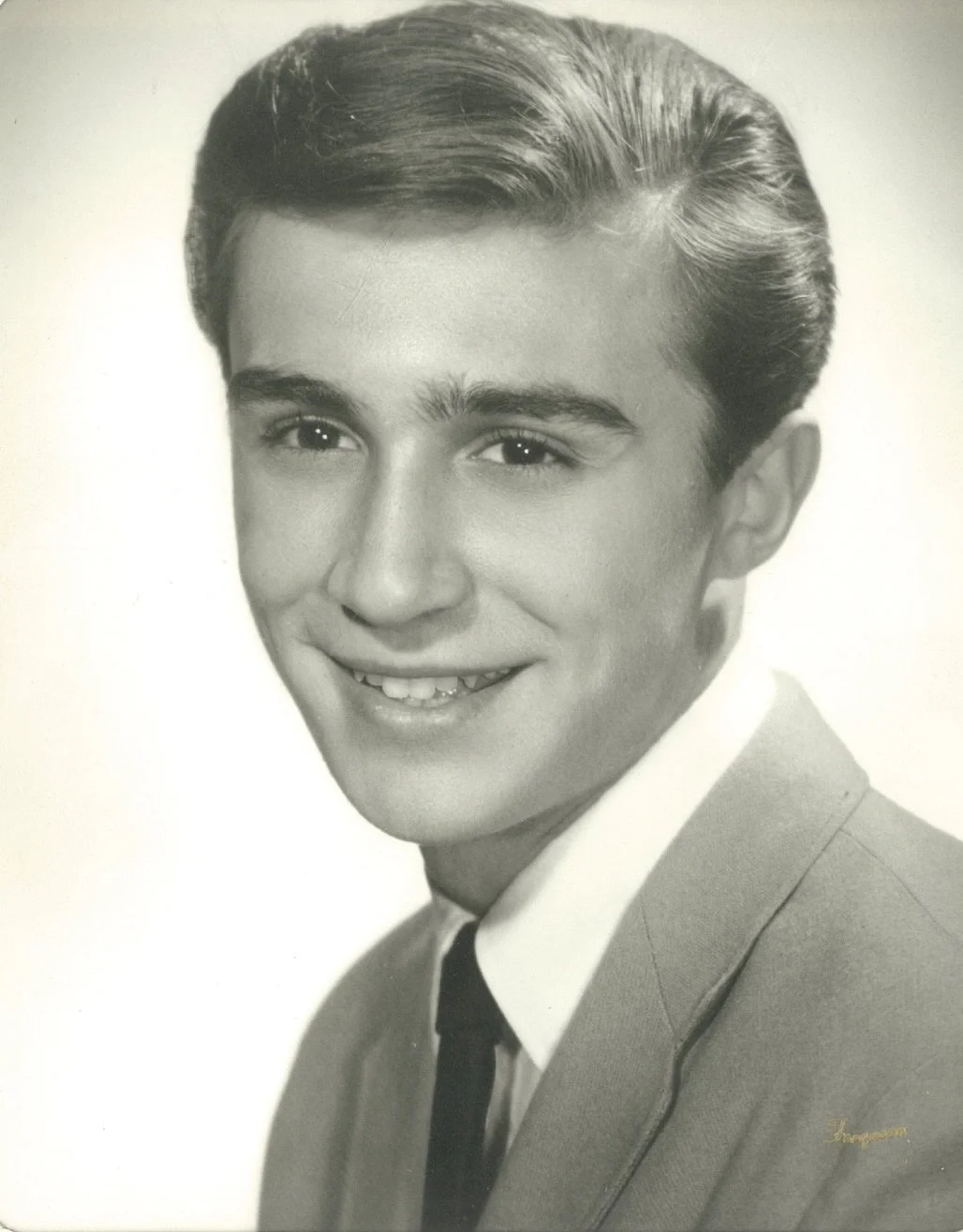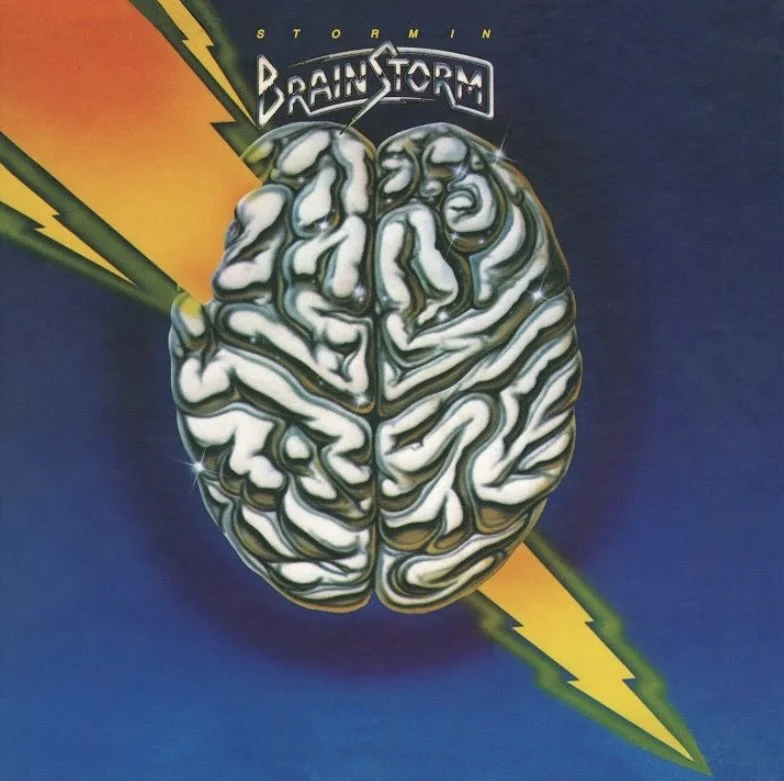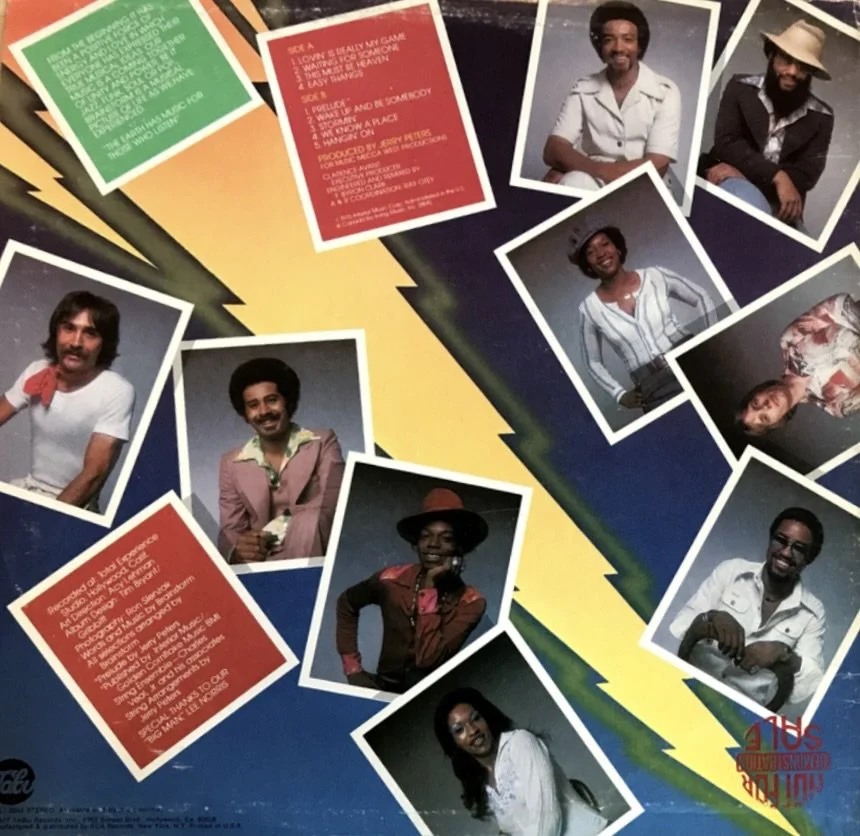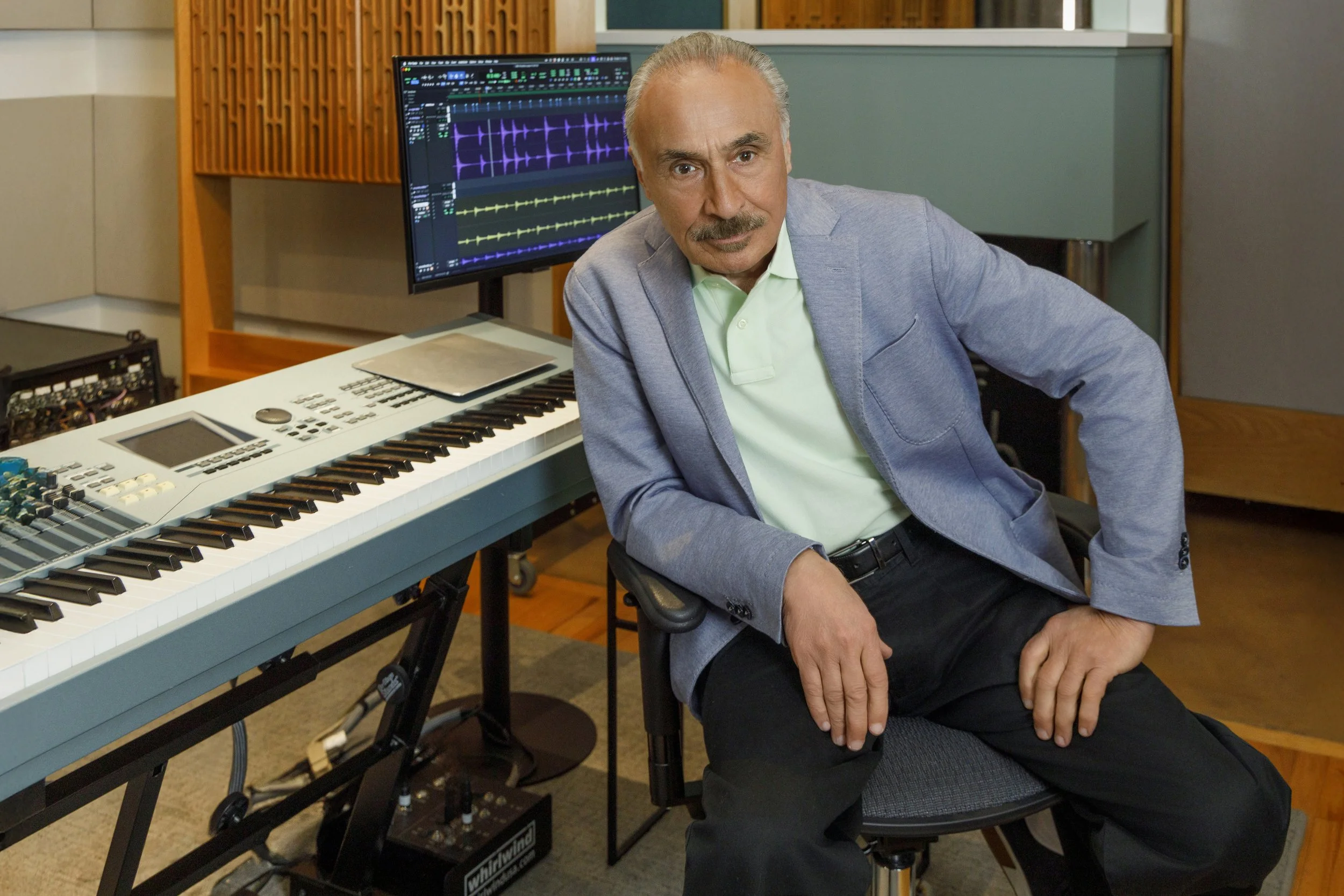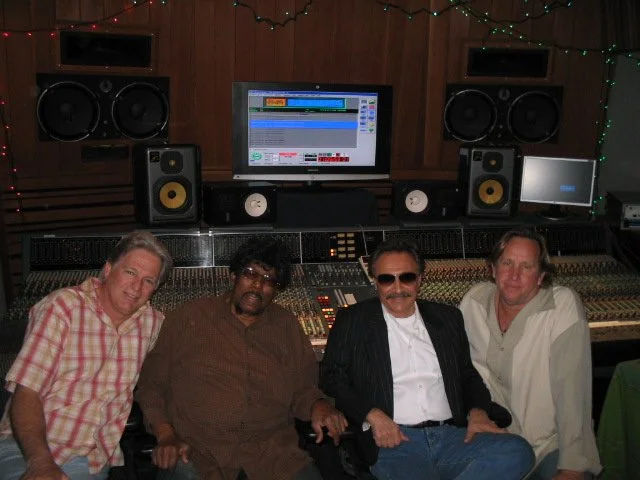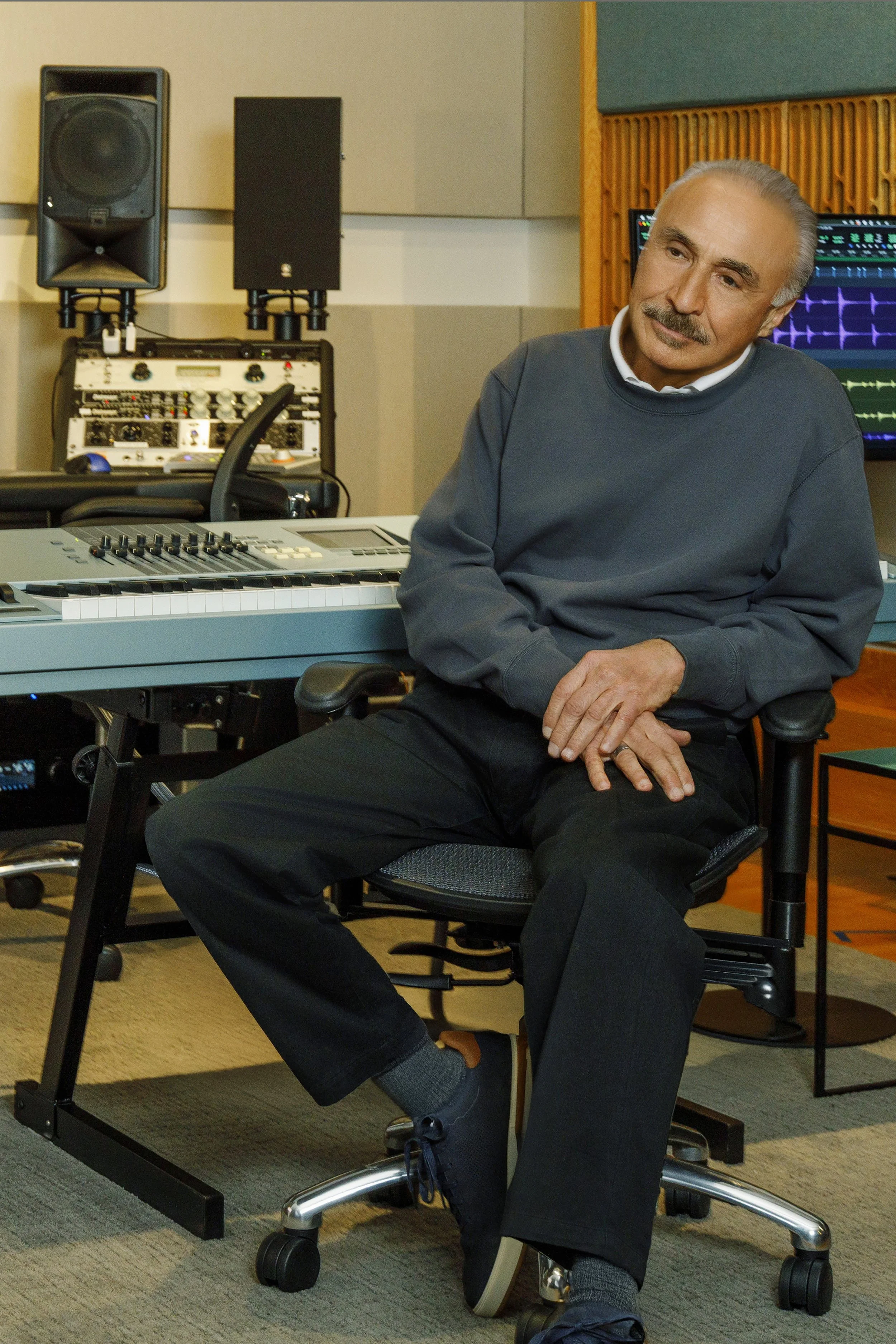U of Soul is a band and production company featuring the singing, songwriting and keyboards of RJ Ross.
Over a long career on stage and in studios, RJ Ross, a.k.a. Professor RJ Ross, always followed his own course—in pursuit of new musical worlds.
“It was always my goal to invent something new—not to merely work within existing styles. I wanted to use elements of the many genres of music I loved, and see if I could synthesize them into something new and surprising.”
I wondered, in an age of algorithms, is it possible…
When I began work on U of Soul’s latest productions, I wondered, in an age of algorithms, is it possible to create a music that stands out as original and authentic?
We asked ourselves, could we create something that was simple and yet sophisticated?
Something that had the exciting dance rhythms and uplifting melodies of Pop, but was also informed by the long history of great American Jazz?
Could we create a music that’s easy and fun but also draws on the knowledge of the incomparable European and American Classical composers?
Since the songs started to be released over the last year, U of Soul has added over 96,000 subscribers and received over 5 million views on YouTube, in addition to millions of views on other streaming platforms.
In my long career as a professional musician, I’ve never seen anything like the response to this music—young, old, white, black, hispanic, asian, male, female, ordinary people, and the highest level music professionals are blown away by it. The level of enthusiasm expressed in the hundreds and hundreds of messages we receive from all around the world is simply jaw-dropping.
The Songs
A Musician’s Life
I grew up in Detroit when it was the global center of automobile production. I loved the glamorous cars—the Thunderbirds, the Cadillacs, the Lincoln Continentals. But I was even more impressed by the music I heard every day on the radio.
I was hearing monumental, one of a kind artists like Little Richard, Chuck Berry, Elvis, Curtis Mayfield, The Everly Brothers, Roy Orbison, Ray Charles, and the brilliant Bossa Nova songs of Antonio Carlos Jobim. I was also hearing the amazing artists from Detroit’s Motown Records like Smokey Robinson, The Temptations, Martha and the Vandellas, Marvin Gaye, Stevie Wonder, and Gladys Knight. And of course, like the whole world, I fell madly in love with The Beatles.
But the most amazing thing was that the songs I heard were all so innovative and so masterfully put together.
The first time I heard the music of Little Richard…
The first time I heard the music of Little Richard, it hit me like a ton of bricks.
I was 7 or 8 years old, and as I remember it, I was home alone. My older brother had brought home a new record and I put it on the turntable. It was Little Richard’s Slippin’ and Slidin’.
Now I had always loved music, but I didn’t know music could have this kind of power and authenticity. As the record played, and King Curtis began his extended sax solo, my 7 year-old self danced its way into Rock & Roll heaven. It really was a music that was filled with divinity. A music that was rapturous and ecstatic.
When I was 9, I started studying trumpet with a teacher from the Detroit Symphony Orchestra. And I was pretty good—I was working professionally as a trumpet player and singer by the time I was 11.
As a kid, I idolized my older brother and I wanted to do everything he was doing. He led the most popular dance band in our area, playing weddings and all the big parties. So at 11 years old, I started my own dance band. We worked all the time. Also playing weddings and parties. And getting paid for it!
When I was 16, a local record company signed my band to a record contract. I wrote and sang lead on a song (“You’re The Love” by The Sixpence) that made radio charts around the country, and was listed in Billboard Magazine’s Just Bubbling Under the Top One Hundred chart.
RJ, 14 years old, performing with his band
You’re the Love, written and released when RJ was 16.
Now you might think, as an 11 year-old, booking gigs for my own band and as a 16 year-old signing a record deal, there must have been “stage parents” behind me—promoting my career and opening doors for me. Nothing could be further from the truth. My parents had no idea what I was doing, and apparently had no interest in it. And that was fine with me! They let me do whatever I wanted. And I lived a life of total, unsupervised freedom. (While, as a kid, I treasured this freedom, over time I came to realize this was not an ideal situation. Kids do need freedom but they also need supervision and guidance.)
By the time I was 19, I became eager to expand my musical horizons. I started listening to the great jazz musicians of the day—Miles Davis, John Coltrane, Thelonious Monk.
About 12 or 13 years old
I thought jazz was going to be difficult to understand.
That it would take me a while to get into. But the moment I played a Thelonious Monk record I got it. It was really just rhythm and blues with a very modern, almost “cubist” perspective. (I knew about cubism from reading my sister’s art history books.)
At the same time, I started listening to and studying classical music. From Bach to Beethoven, Stravinsky to Prokofiev, whole new musical worlds were opening up before me.
When I was 19, I had a vision that maybe someday I could create a kind of pop music that was on the level of fine art. But I knew that to accomplish this, I would really have to start applying myself. The freewheeling days of my youth were over and it was time to get disciplined.
I also knew that to be a good composer I had to be a good pianist. I’d been performing as a singer and trumpet player since I was eleven. But here I was, 19 years old, and I had never taken a single piano lesson. I began practicing piano 5, 6, and 7 hours a day. And I maintained this schedule year after year. I still love practicing and improving my skills as a pianist, a composer, and as a singer.
After graduating music school in Detroit, I wanted to start getting some experience as a piano player. Local musicians Byron Miller and Ricky Lawson asked me to start performing with them. And these guys were good. Byron went on to play bass with George Duke and Anita Baker, and Ricky became Michael Jackson’s drummer on his huge world tours.
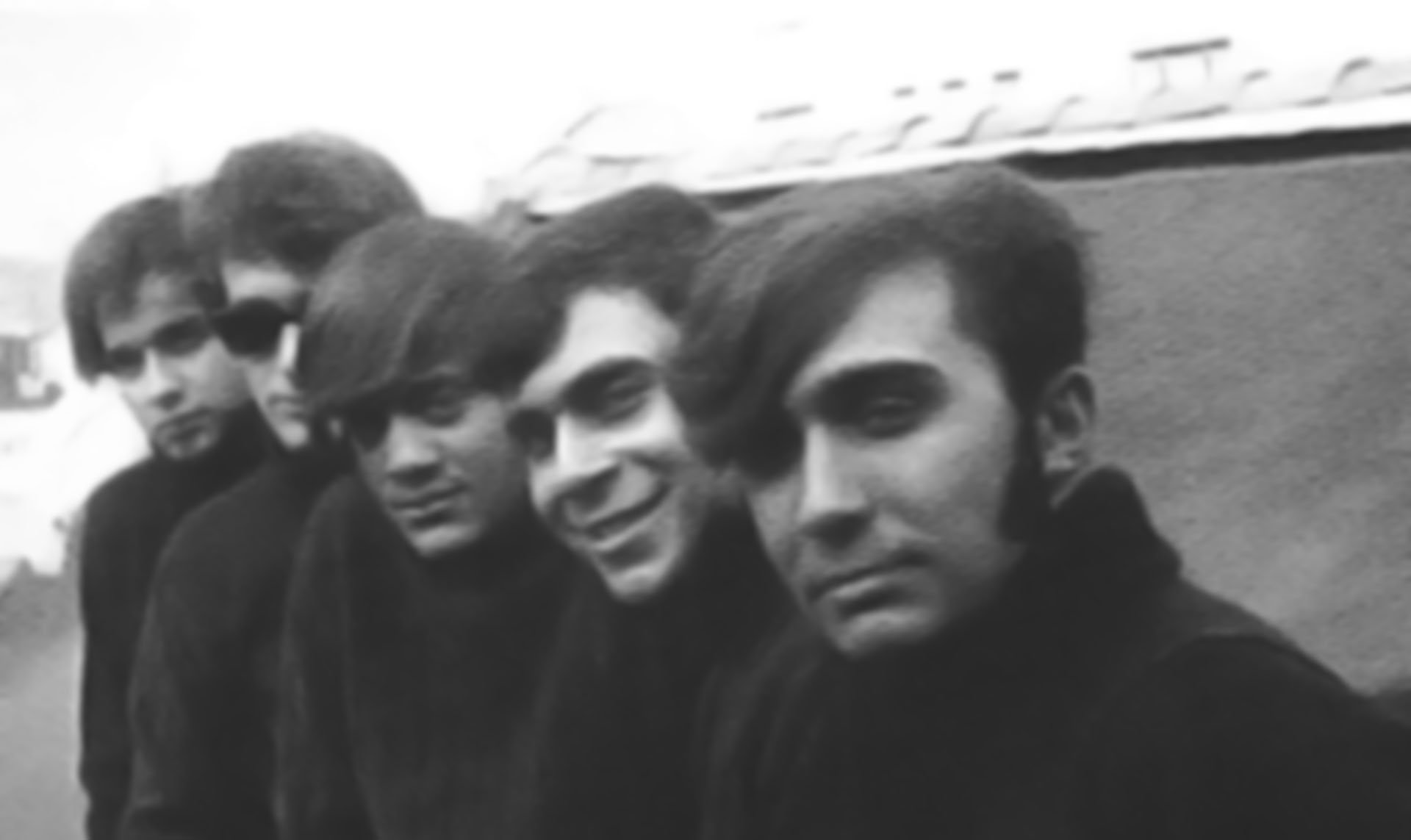
RJ, 16, with his band, The Sixpence
The thing is, I had no idea what I was doing.
I mean I had no idea what parts a piano was supposed to play in a R&B rhythm section. But I was creative, and passionate and I’d been performing on stage since I was a kid (although not as a piano player). And I guess those guys liked what I was doing because they kept calling me back to play the next gig.
A couple years later, I helped form the legendary Detroit soul band, Brainstorm. We were signed by Clarence Avant’s Tabu Records and our song Loving Is Really My Game reached #3 on the Billboard Dance Charts. One of the songs I wrote for the album was This Must Be Heaven, which is now considered to be a soul classic.
After moving out to San Francisco, in my late twenties, a singer I had worked with recommended me to the manager of the world-famous Fantasy Studios, the #1 recording studio in the Bay Area.
Someone called me and asked me if I would be willing to move all my keyboards and MIDI gear into their huge studio complex, where they would give me my own keyboard studio. I tried not to show my excitement.
For the next 5 years I worked full-time at Fantasy as an in-house keyboardist, arranger, and electronic music professional.
Stormin’ by Brainstorm (top). RJ on far left (bottom).

RJ in the Fantasy Studios keyboard room
The years I worked at Fantasy Studios were like weight-training for an aspiring composer.
Fantasy Studios staff, RJ seated on far left
Fantasy Studios. RJ with engineer Michael Rosen and singer-songwriter Robie Pakter.
Every day, and often every evening, I was being asked to write a bass line, a chord progression, drum parts. And I was also frequently directing singers and great musicians as the songs were developed and recorded. My love and knowledge of production just grew and grew. And on top of all that, I was actually making pretty good money!
In the Fantasy Studios keyboard room.
My glamorous days.
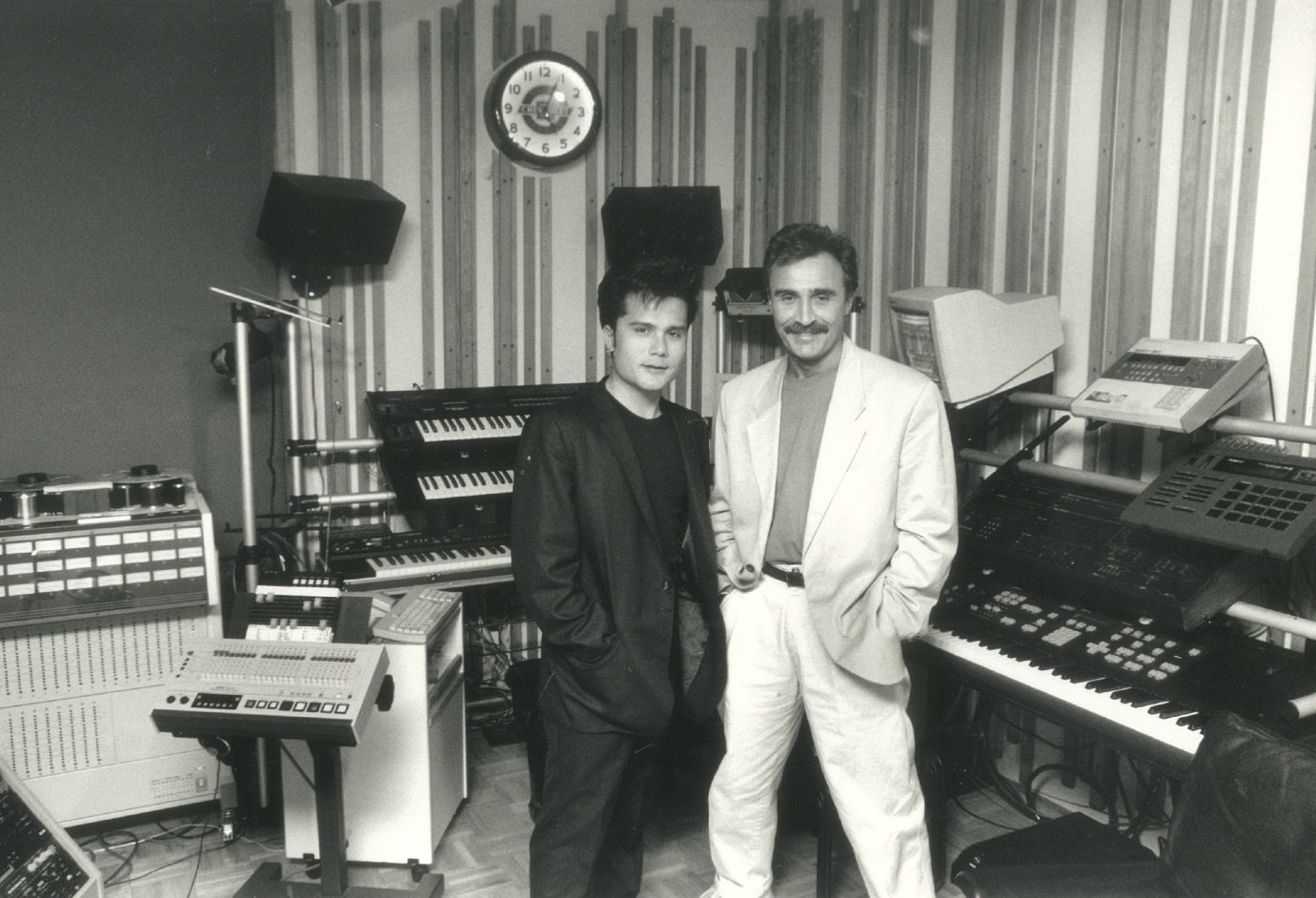
Discussing production work with a client
Credits
So many talented people were a crucial part of these U of Soul productions.
With mixing engineer Michael Frondelli at Brokenwave Studios LA (left). Hanging with percussionist Lenny Castro at Stagg Street Studios LA (right).
Backing Vocalists: Crystal Hall, Jeannie Tracy, Claytoven Richardson, Sandy Griffiths, and Luqman Frank
On “Autumn Leaves”, James Gadson on drums, Freddie Washington on bass, Jerry Stucker on guitar
On “Ventura Highway”, Steve Gadd on drums, Freddie Washington on bass, Jerry Stucker on guitar, Neil Larsen on Hammond B3 organ, Roberto Quintana on percussion, Melecio Magdaluyo on sax
On “I’ve Got To Use My Imagination”, Steve Gadd on drums, Freddie Washington on bass, Jerry Stucker on guitar, Neil Larsen on Hammond B3 organ, Roberto Quintana on percussion
All Lead Vocals, Arranging, Programming and Keyboards by RJ Ross
Additional drumming, Vinnie Colaiuta
Additional percussion, Lenny Castro and Kenneth Nash
Engineers: Adam Munoz, Tom Lukens, Dave Rideau, Michael Frondelli, Ed Cherney, Al Schmitt, Rick Perez, Trent Slatton, Jerry Stucker and Juan Blair
Additional Programmers: Rich Pilkington, Justus Dobrin, and Ryland Allison
Logo animations and lyric videos by Jerry Van De Beek of Little Fluffy Clouds
Website photography by Jane Richey Photography
Archive photo editing, Li Kaiwei
Website design by Kevin Hoelscher at Thumbtack Studios
All music and lyrics (except cover songs) written by RJ Ross
All songs (except cover songs) published by Big Sea Music BMI
“Autumn Leaves” written by Joseph Kosma, Johnny Mercer, & Jacques Prevert. Published by Morley Music Co. OBO Enoch & Cie, S D R M
“Ventura Highway” written by Dewey Bunnell. Published by Warner Bros. Music
“I’ve Got To Use My Imagination” written byJerry Goffin, & Barry Goldberg. Published by Screen Gems-EMI Music
With drummer Steve Gadd and guitarist Jerry Stucker at Red Star Studios LA (left). Jerry Stucker, drummer James Gadson, RJ, and mixing engineer Ed Cherney at The Village Recorder LA (right).
Thoughts on Music
When I was a young man and I would have the privilege of meeting an old, but very accomplished musician, I was often struck by their demeanor. They always seemed to be gentle people. Very kind. Very humble. And I thought, wow, a life in music can have this effect on one’s character.
To me, a great singer is a great actor. How boring if our songs are just about ourselves.
To me, a great singer is a great actor. The best actors don’t want to only play roles based on their own lives. They want to be versatile and they want to convincingly play a wide range of characters. Great actors and great singers strive to tell all kinds of stories—expressing the widest possible range of human experience and emotion. How boring if our songs are just about ourselves. I mean, is your life really that unique and interesting?
Like so many young people, in my late teens I felt lost and confused. The things that were generally valued seemed hollow and false to me. I felt like I would never fit in to this world, and it all made me feel very anxious and sad.
I needed to find something that was bigger than myself. Better than myself. Smarter than myself. Something that was kinder than myself. For me, that thing was music. And devoting myself to it, has made all the difference.
Contact
At present, U of Soul is focused entirely on studio production—putting the final touches on some exciting new material.
But we are also working hard to finish an amazing new video soundstage designed by animator, Jerry Van De Beek. Once the new soundstage is up and running, U of Soul will begin releasing a series of live video performances.
We hope you enjoy the music. Don’t forget you can download the MP3 versions of all the songs here for free.
You can also find U of Soul songs on all the streaming services, including Spotify, YouTube, SoundCloud, Apple Music, TikTok, and Amazon Music.
Please take a minute to leave us your email address. We won’t share it with anyone. But we’ll be able to update you on all the latest U of Soul news and events. And from time to time we’ll send you a sneak preview of our newest music and videos.
We’d love to hear from you:


